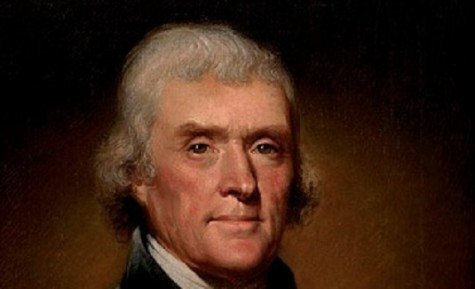On July 27, 1789, Congress created the State Department, which became an important part of the Executive Branch established under the new Constitution.
It was a function and department so important that James Madison proposed it to the First Congress and Thomas Jefferson was appointed as the first Secretary of State.
The successful conduct of foreign affairs was critical to the young nation and some of the nation’s leading Founding Fathers served as diplomats. For instance, during the Revolutionary War and the subsequent era of rule under the Articles of Confederation, Benjamin Franklin, John Adams and John Jay all served the young nation’s interests abroad.
The Confederation Congress appointed Robert Livingston to head the Department of Foreign Affairs, a predecessor unit, in 1781. However, due to the Articles of Confederation’s decentralized diplomacy, Livingston and his successors found their ability to conduct any diplomatic business very limited.
The newly ratified Constitution made sure that the President and Congress had roles in affairs of state. Article II, Section 2 said that the President “shall have Power, by and with the Advice and Consent of the Senate, to make Treaties, provided two thirds of the Senators present concur; and he shall nominate, and by and with the Advice and Consent of the Senate, shall appoint Ambassadors, other public Ministers and Consuls.”
Jefferson believed that the President and the Executive Branch had the leading role in conducting foreign policy. “[The president] being the only channel of communication between this country and foreign nations, it is from him alone that foreign nations or their agents are to learn what is or has been the will of the nation; and whatever he communicates as such, they have a right, and are bound to consider as the expression of the nation,” he wrote to Edmond Charles Genet in 1793.
President George Washington appointed Jefferson as the first Secretary of State in March 1790 and Jefferson headed the first Cabinet branch with a staff of five employees. Despite his feelings towards France, Jefferson faithfully advocated President Washington’s philosophy of neutral foreign policy. , And, in the footsteps of Benjamin Franklin, Jefferson set the tone for an unpretentious American diplomatic style.
Jefferson resigned as Secretary of State in late 1793 as part of a struggle with Alexander Hamilton, the Treasury Secretary, over the centralized role of the new federal government. But the office soon carried considerable prestige. Of the 10 secretaries who served between 1790 and 1831, five were later elected President (Jefferson, Madison, James Monroe, John Quincy Adams and Martin Van Buren) and another, John Marshall, served as Chief Justice of the United States.








